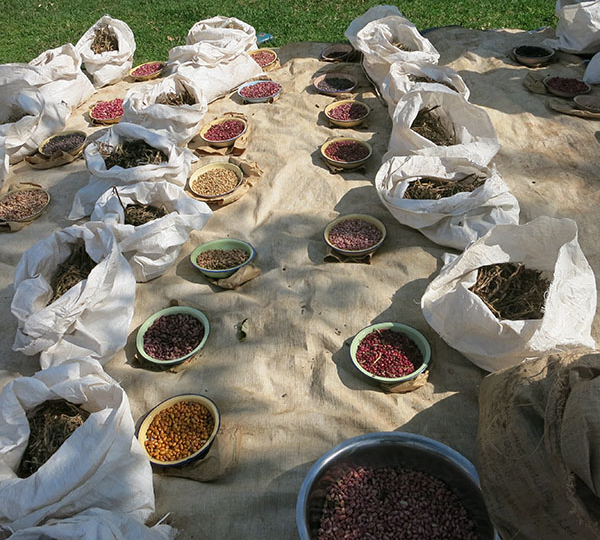
Best Bet II
Lead Organization:
EEkwendeni Hospital, Bunda College & Michigan State University
Partner Organizations:
Lipangwe Organic Manure Development Farms (LOMADEF)
Community of Practice:
Countries:
Malawi and Tanzania
Duration:
3/2010—3/2014
Overview:
Since November 2006 CCRP has funded research in Malawi to improve household food and nutrition security by increased legume production and utilization. The “Best Bets Legumes” project is based on the principle that legume diversification within a predominantly maize-based crop system will improve soil health/fertility to benefit subsequent maize yields (build a re-generative agriculture) while providing household nutritional and market benefits. Participatory work has concentrated on improving system productivity and encouraging greater use of legumes through recipe days and other group approaches. Research with farmer research groups has demonstrated response of maize to legume residues was consistently higher for legume + a low dose of nitrogen fertilizer than for fertilizer applied alone to a continuous sole maize system. The “doubled up legume technology” (pigeonpea intercropped with soybean or groundnut, then rotated with maize) has shown itself superior in terms of multiple crops produced per land and labor invested, and in terms of improving fertilizer efficiency. Over two seasons of evaluation, over 80% of the farmers involved in farmer research groups at the Ekwendeni research site indicated that they would like to grow more of the doubled-up legume technology, followed by maize + pigeonpea intercrop (20%). Similar responses were provided by farmers in Kasungu.
Grant Aims:
Low crop productivity due to declining soil fertility, mitigation of the effects of a variable climate, the future effects of climate change are all issues impacting on diets in southern Africa. Providing further funding to the Best Bets Team in Malawi should lead to a deepening of impact of best bets legume diversification through expanded legume knowledge and use by the most vulnerable. Enhanced knowledge of scientific principles of family nutrition, soil processes and legume agronomy will be widely promoted, and capacity enhanced at University of Malawi to carry out science for development. Recruiting a student from Mozambique will also allow the team to contribute within the SAf CoP to wider development of agricultural R & D systems in the region.
The work program proposed by the Best Bets team has been designed to expand our knowledge of the range of legume diversification strategies to provide long-term sustainable benefits to soil health and human nutrition. With current work funded by CCRP at Bunda College on Integrated Soil Fertility Management promotion methods expected project outputs will inform Malawi government policy for nationwide up-scaling of legume “best-bets”.
Outputs and Outcomes:
1. Adaptation of “best bet” legumes to improve soil health and crop productivity in a variable climate: Best Bets 2 will determine how legume species and mixtures could perform over time, and in different zones of Northern Malawi, Central Malawi and adjoining Mozambique.
2. Scaling-out awareness and promotion of legume “best-bets” to a range of agro-eco zones: The project will target enhanced innovation and scaling out best bets to reach >40,000 farmers living in or near project sites, and extension materials will be developed and disseminated to support Malawi and Mozambique government extension programs.
3. Deepening impact of increased production of legumes to improve diets of vulnerable households: Best Bets 2 will work with risk HIV/AIDS affected households to understand how best bet legume diversification can enhance the nutrition of vulnerable groups. Nutritional and legume agronomic education will be intensified at the Ekwendeni site, led by the Soils Food and Healthy Community Project of the Ekwendeni Hospital, with a focus on HIV/AIDS affected households.
4. Developing capacity and supporting collaboration in research on legume diversification in agricultural R & D systems in southern Africa: Best Bets 2 has ambitious plans for training but on the basis of what was achieved in Best Bets 1 these can be realized through support from the proposed budget and complimentary sources of funding.